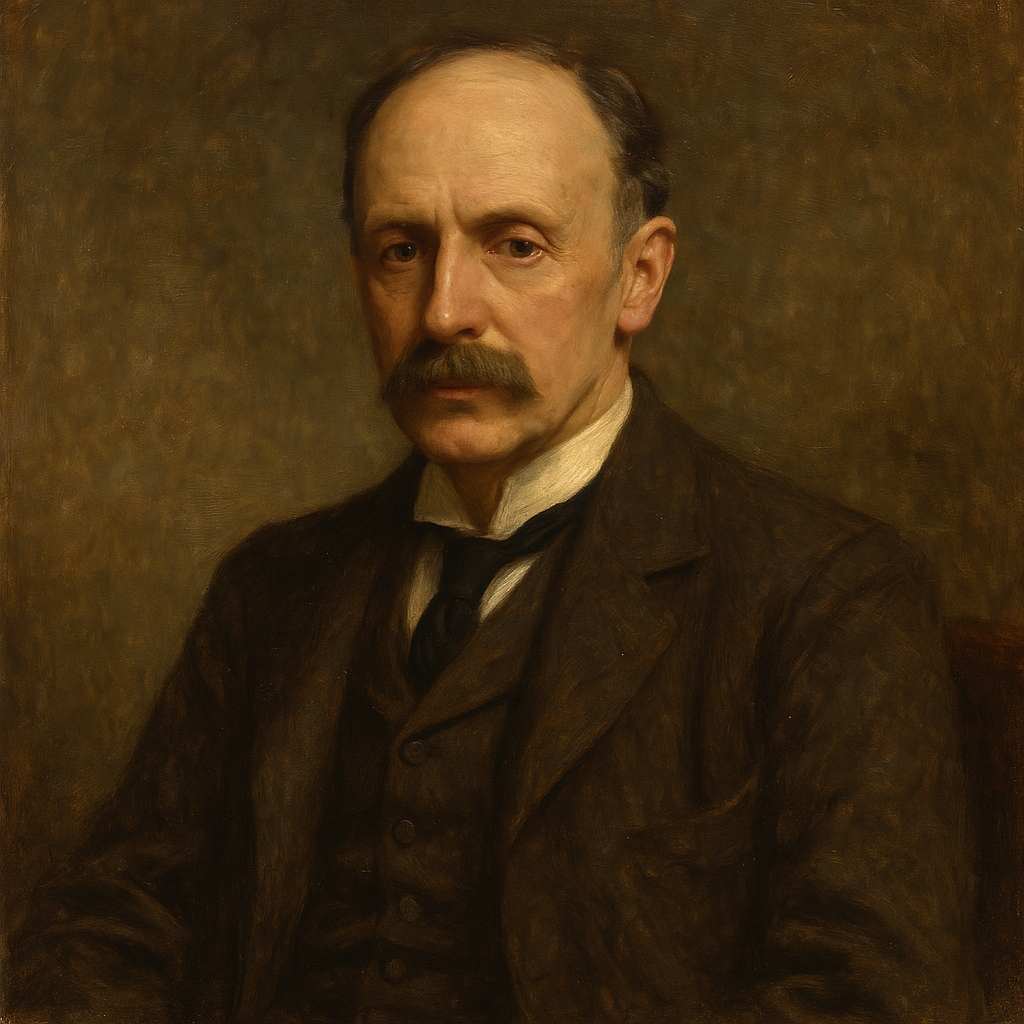1 Poems by Henry Newbolt
1862 - 1938
Henry Newbolt Biography
Henry John Newbolt was an English poet, novelist, and historian who left an indelible mark on British literature during the late Victorian and Edwardian eras. Born on June 6, 1862, in Bilston, Staffordshire, Newbolt grew up in a world steeped in the values of the British Empire, a theme that would profoundly influence his later works.
Newbolt's early life was marked by tragedy and resilience. He lost his father, Reverend Henry Francis Newbolt, when he was only two years old. This loss deeply affected the young Henry, who was subsequently raised by his mother, Emily Newbolt. Despite the hardship, his mother ensured that he received a sound education, fostering in him a love for literature and classical learning that would shape his future career.
The poet's formative years were spent at Clifton College, Bristol, where he excelled academically and developed a strong affinity for the school's ethos. This period of his life would later inspire one of his most famous poems, "Vitaï Lampada," which draws parallels between the spirit of cricket and the valor of warfare. The poem's refrain, "Play up! play up! and play the game!" became a rallying cry for generations of British schoolboys and soldiers.
After Clifton, Newbolt went on to study at Corpus Christi College, Oxford. Here, he further honed his literary skills and developed a deep appreciation for classical literature and history. His time at Oxford also exposed him to the works of contemporary poets and the burgeoning aesthetic movement, influences that would later manifest in his own poetic style.
Upon graduating from Oxford in 1885, Newbolt pursued a career in law. He was called to the bar in 1887 and practiced until 1899. During this period, he married Margaret Edina Duckworth in 1889. The couple had two sons and a daughter, and their family life provided both stability and inspiration for Newbolt's literary endeavors.
While working as a barrister, Newbolt continued to write poetry, and his first collection, "Admirals All," was published in 1897. The collection was an immediate success, particularly the aforementioned "Vitaï Lampada." The poem's popularity stemmed from its stirring patriotic sentiment and its celebration of British public school values, which resonated deeply with the public during the height of the Empire.
Newbolt's poetic style was characterized by its strong rhythms, vivid imagery, and often martial themes. He frequently drew upon historical events, particularly naval battles, to craft his verses. This focus on maritime history and heroism earned him the moniker "the laureate of the sea." His ability to evoke the spirit of adventure and duty associated with Britain's naval tradition made him a favorite among readers who took pride in the country's imperial achievements.
In 1900, Newbolt published "The Island Race," another collection that further cemented his reputation as a patriotic poet. This work, along with his subsequent publications, established him as one of the leading literary figures of his time. His poems were not only popular among the general public but also gained recognition in academic circles for their technical proficiency and thematic depth.
Beyond poetry, Newbolt was a prolific writer in other genres. He authored several novels, including "Taken from the Enemy" (1892) and "The Old Country" (1906). These works, while less celebrated than his poetry, showcased his versatility as a writer and his keen interest in historical themes.
Newbolt's contributions to literature extended beyond his own writing. He served as editor of the "Monthly Review" from 1900 to 1904, providing a platform for emerging writers and shaping literary discourse. His influence in the literary world grew, and he became a respected figure among his contemporaries.
The outbreak of World War I in 1914 marked a significant turning point in Newbolt's career. His patriotic verses found new relevance as Britain rallied its forces. During this period, he worked for the War Propaganda Bureau, using his literary talents to boost morale and support the war effort. This role, while controversial in retrospect, demonstrated the power of his words in shaping public opinion.
In the post-war years, Newbolt's focus shifted somewhat. He became increasingly interested in education and the role of literature in society. In 1921, he chaired the Departmental Committee on the Teaching of English in England, producing what became known as the "Newbolt Report." This influential document argued for the central importance of English literature in the curriculum, emphasizing its role in fostering national identity and cultural understanding.
Newbolt's later years were marked by continued literary output and public recognition. He was knighted in 1915 for his services to literature, and in 1922 he was appointed a Companion of Honour. His autobiography, "My World as in My Time," published in 1932, provided valuable insights into his life and the literary world of his era.
Henry Newbolt passed away on April 19, 1938, leaving behind a complex legacy. While his patriotic verses fell out of favor in the more skeptical post-war world, his influence on English literature and education remained significant. Today, scholars continue to study Newbolt's work, not only for its literary merit but also as a window into the values and aspirations of late Victorian and Edwardian Britain.
In retrospect, Newbolt's poetry embodies both the strengths and limitations of his time. His celebration of duty, honor, and imperial pride reflects the prevailing ethos of his era, while his skillful use of language and evocative imagery demonstrates his poetic craftsmanship. As we continue to grapple with questions of national identity and the role of literature in shaping cultural values, Henry Newbolt's life and work offer a rich field for exploration and critical analysis.
This text was generated by AI and is for reference only. Learn more
Username Information
No username is open
Everything is free to use, but donations are always appreciated.
Quick Links
© 2024-2025 R.I.Chalmers (V2Melody).

All music on this site by R.I.Chalmers (V2Melody) is licensed under a Creative Commons Attribution-NonCommercial 4.0 International License.
Attribution Requirement:
When using this music, you must give appropriate credit by including the following statement (or equivalent) wherever the music is used or credited:
"Music by R.I.Chalmers (V2Melody) – https://v2melody.com"
Support My Work:
If you enjoy this music and would like to support future creations, your thanks are always welcome but never required.
Thanks!


